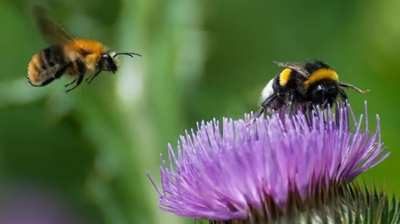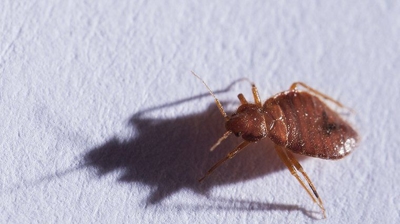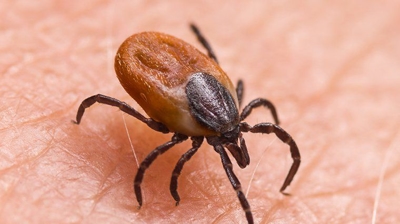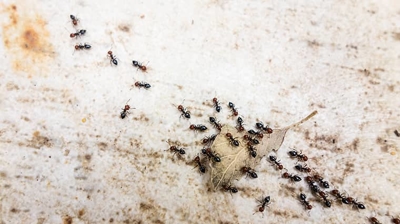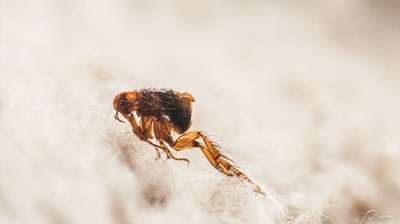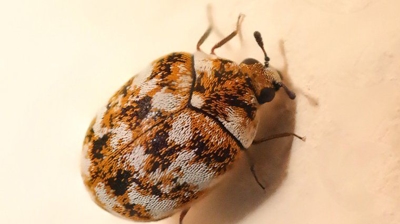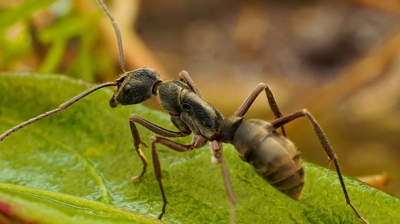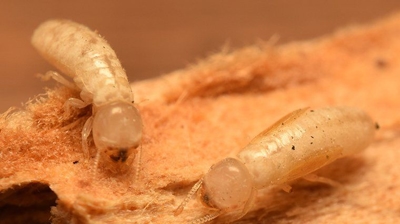
Marietta Property Owners' Ultimate Mosquito-Control Guide
How much do you know about mosquitoes? Do you know that mosquitoes don't live on blood but feed on nectar and plant sap? Are you aware that only female mosquitoes take a blood meal for the purposes of reproduction? Do you know that all mosquitoes do not carry all viruses, or that some mosquitoes species don't carry any viruses? When it comes to defending yourself from mosquito-borne diseases, the first step is mosquito identification. But that's a little difficult. The mosquitoes in America that carry diseases are sometimes difficult to distinguish from those that don't. We have a jam-packed guide for you today. We're going to start by helping you distinguish dangerous mosquitoes, talk for a moment about why this is important, and then share six eco-friendly tips that will help you keep mosquitoes away from your yard. If you're not into learning about mosquitoes and you just want to get rid of mosquitoes, hop over to our contact page for professional mosquito pest control in Marietta. We offer one-time service as well as seasonal mosquito reduction that address all the mosquitoes in your yard.
How To Identify A Mosquito
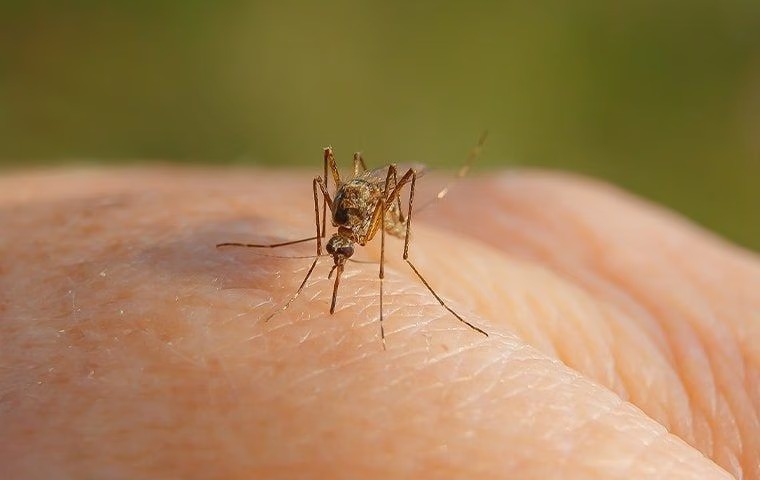
There are primarily three kinds of mosquitoes that are a concern in the United States and in our Marietta service area. That's not bad, considering there are over 100 different types of mosquitoes in the country. Let's look at these three and discuss identifying traits.
Anopheles: The most dreaded mosquitoes in the world (but not here in the U.S) is the Anopheles sp. because they spread malaria. Some experts estimate more than 750,000 deaths are linked to malaria. While not endemic to our country and only rarely occurring in outbreaks, we don't have to fear these mosquitoes too much. But it is wise to be cautious. You never know when one has bitten a traveler from a country where malaria is endemic. These mosquitoes are brownish and have two palps that are the same length as their proboscis, which is the pointy needle-like mouth part. It is hard to tell Anopheles apart from other mosquitoes by coloration alone. Fortunately, they have a characteristic that makes them stand out. While other mosquitoes will sit on your skin with their back parallel, these mosquitoes lean forward and their back is at an angle. The problem with using this to distinguish them is that they have to land on you.
Culex: There are a few species of Culex mosquitoes but they're all similar to each other. The concern with these pests is that they spread the most dangerous mosquito-borne viruses endemic to our country. If you're not familiar with the word endemic, it means they're found in local animal populations and are localized—West Nile virus being the worst. These mosquitoes are gray with white, green, and silver, or iridescent blue scales.
Aedes: There are primarily two species of Aedes. The aegypti are tropical and subtropical mosquitoes. The albopictus are found in colder states. Both are implicated in the spread of viral outbreaks, such as Zika virus, dengue fever, yellow fevers, chikungunya, and more. These are the easiest of the three to identify. Aedes mosquitoes are a contrasted black and white coloration and banding on the legs.
We realize you're not going to want to spend too much time looking at a mosquito that has landed on you, but a quick two second inspection is likely all that is needed. If you're familiar with the identifying traits, you may distinguish what is biting you.
Along with visual identification, you may use an app on your smartphone to identify mosquitoes. These apps listen to the sound mosquitoes make and let you know what mosquitoes you've recorded. That's some cool tech. Plus, along with finding out what mosquitoes are biting you, you'll help scientists track dangerous mosquitoes and analyze their distribution zones.

Why Choose ProCare Pest Services?
-
Locally Owned & Operated
-
Timely Services Available
-
Free Inspections for Your Home or Business
-
Modern & Effective Pest Control Methods
Six Eco-Friendly Mosquito-Prevention For Around Your Yard
It might not seem like mosquito control is a battle you can win, but it is. Mosquitoes don't populate every square foot of the world; it just feels that way sometimes. Why does it feel that way? Because mosquitoes can swarm you as soon as you leave your home to go out into your yard and enjoy some downtime. Those mosquitoes don't fly around all day long waiting for you. They rest in your yard and fly over to bite you when they detect you exiting your home. Mosquitoes rest quite a bit. They're pretty lazy. So, when you take steps to address the mosquitoes in your yard, you won't immediately have more mosquitoes come in and replace them. They'll take even longer if you remove the reasons mosquitoes want to live on your property.
1. Remove Containers
Anything that captures rainwater can create a breeding location for mosquitoes. A female mosquito only needs a half an inch of water. Some experts say mosquitoes can breed in the cap of a plastic soda bottle. The female lays her eggs a hundred at a time. We're not so sure she can fit a hundred eggs into a bottle cap full of water, but she doesn't need much more than that.
2. Address Conditions That Create Puddles
Along with containers, you need to prevent puddles from sitting on your property for more than seven days. Why that long? It takes a little over seven days (under the right conditions) for a mosquito to develop from egg to adult. All but the adult stage takes place in stagnant water.
3. Pour Water Out
When you happen upon a hundred wigglers (those are mosquito larvae) moving around in a container of water, all you need to do is pour it on the ground. Doing this will destroy the larvae and prevent a mosquito swarm. You can use this tip for things like a kiddie pool, a child's dump truck, or a plastic bucket. Kids have a tendency to leave toys around that mosquitoes can take advantage of after a rainstorm.
4. Address Flowering Weeds
When mosquitoes fly up to your property, lots of flowering weeds will invite them in. Mosquitoes love nectar as much as bees and wasps do. If you remove the weeds, you remove the bread crumbs that lead mosquitoes across your wide open lawn to the moist hiding places in your landscape vegetation.
5. Set Traps
There are devices that provide breeding sites for female mosquitoes. When the females go to lay their eggs in these traps, the eggs are destroyed, and the female mosquitoes are eventually destroyed as well.
All of these tips work naturally to reduce mosquito activity and prevent bites. If you have higher-than-normal mosquito pressures or you have zero tolerance for mosquitoes in your yard, seasonal mosquito reduction is the way to go.
-
"The ProCare team continuously provides wonderful and effective service"
The ProCare team continuously provides wonderful and effective service. Every technician we've had is friendly and considerate, true professionals, and very responsive to any questions or areas of concern we discuss.
Naomi G. -
"He is Procare’s shining star"
Brandon is awesome and always does an outstanding job for us.
Brue W. -
"We love ProCare"
We love ProCare! Have been with them for almost 6 years now and have never had a negative experience.
Shawn K. -
"Very knowledgeable and was patient with all our questions"
First time customer. Scheduling was a breeze and they sent me lots of reminders.
Dave J.
The Most Effective Mosquito Control For Your Yard
Routine visits from a pest control technician and a backpack mister are all you'll need to stay ahead of mosquitoes. These misters contain a knockdown agent that is only potent enough to harm simple organisms such as mosquitoes, ticks, and fleas. After each application, it takes time for new mosquitoes to enter your yard and start the breeding process and swarming process again. If you're in Marietta, contact ProCare Pest Services for assistance. We don't just knock down adult mosquitoes, we guide you in making your yard resistant to mosquito activity. Connect with us today.
Complete the form below to request your quote.

Stay In The Know
-
 Carpenter Bee Survival Guide: Identification, Control, And PreventionRead More
Carpenter Bee Survival Guide: Identification, Control, And PreventionRead More -
 Identifying A Bed Bug Infestation In LawrencevilleRead More
Identifying A Bed Bug Infestation In LawrencevilleRead More -
 Key Practices To Prevent Ticks On Your Lawrenceville PropertyRead More
Key Practices To Prevent Ticks On Your Lawrenceville PropertyRead More -
 A Helpful Pavement Ant Prevention Guide For Lawrenceville HomesRead More
A Helpful Pavement Ant Prevention Guide For Lawrenceville HomesRead More -
 Breaking the Flea Life Cycle In LawrencevilleRead More
Breaking the Flea Life Cycle In LawrencevilleRead More -
 Defeating Carpet Beetles And Reclaiming Your Lawrenceville HomeRead More
Defeating Carpet Beetles And Reclaiming Your Lawrenceville HomeRead More -
 Lawrenceville's Guide To Complete Ant RemovalRead More
Lawrenceville's Guide To Complete Ant RemovalRead More -
 Innovative Termite Control: Modern Solutions for Modern HomesRead More
Innovative Termite Control: Modern Solutions for Modern HomesRead More
